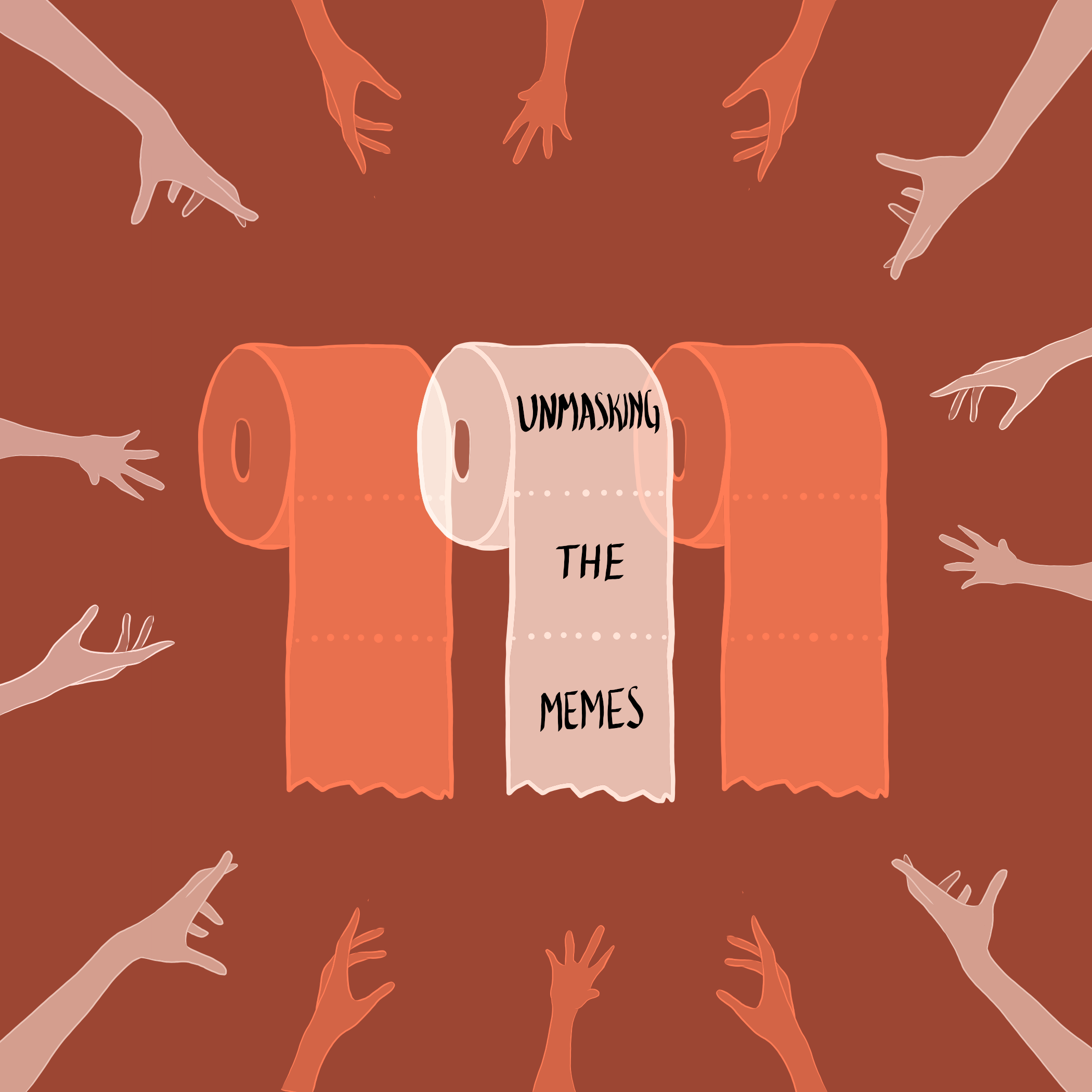
When we were brainstorming for our “Unmasking the Memes” episode, we had a lot of trouble envisioning what the goal would ultimately be. We initially wanted to analyze the effect of general pandemic trends such as tiktok, presidential election, memes, cooking, etc on the mental health and well-being of people in the pandemic. There were two main problems with this approach. Somehow, we did not realize how broad and daunting it would be to analyze so many trends and we did not have a specific argument or thesis in mind. But after a helpful meeting with Professor Morgen, it became clear that the podcast message would be much more clear and coherent if focused a specific aspect of trends such as internet memes.
One thing that I would do differently after making this podcast is change the tone to sound a bit more casual and conversational. After listening to “Fear, Hesitancy, Denial: Perplexed by Lexicon?” episode of the podcast, I really liked that it built an environment where they could tell jokes and laugh that were not scripted but were still related to main talking points. This is definitely something that we could use to improve our future podcasts because I think a more casual tone with jokes and quips can make us speakers more relatable to the audience, making the message easier to digest. I think this problem arose because our podcast was a little bit too scripted. During our podcast planning stage, we had categories and specific memes that we wanted to cover. In addition we also had articles and neurological concepts to explain how these memes affected people. However, I think there were so many concepts and examples that we wanted to cover in such a short amount of time that we were not able to ramble and tell jokes and have fun with it as much as we could have. Memes are fun and light-hearted, and I think adding verbal memes would have elevated the entertainment-value of our episode.
Overall, the podcast was an excellent opportunity and format to achieve the class learning outcomes. Creating the outline and concept for the podcast required a lot of thought into the rhetorical message that we wanted to convey. It also required doing external research and piecing together different sources to write a complete cohesive argument with credible evidence. But ultimately, the medium as a podcast is what sets it apart from a typical English class. Collaborating to create and edit a podcast teaches digital literacy that’s not otherwise possible by just reading and writing essays. As a new-media writing class, I think our podcast achieved the goal of bringing out our creativity and conveying narratives in a more accessible and engaging format.
#podcast